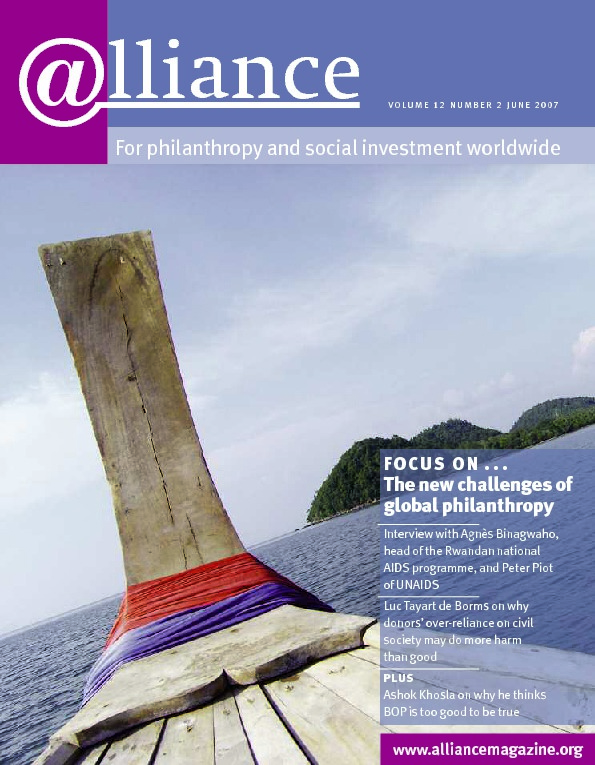The world is facing urgent and complex problems which are global in their nature and thus beyond the capability of national governments to solve alone. How can foundations contribute to solving these problems? In both the US and Europe, a handful of foundations are responsible for over half of international funding. More foundations need to be involved, and more effectively. This article looks at the current state of international funding and makes a number of proposals aimed at helping foundations make a more significant contribution.
In his book, High Noon: 20 global problems, 20 years to solve them, J F Rischard lays out a troubling call to action. He paints a comprehensive picture of 20 or so ‘inherently global issues’ – crises of huge importance, playing out across borders and continents, and only solvable through multi-country or global collaboration. These include climate change, biodiversity and natural resource depletion; the fight against poverty; education and health for all; and the regulation of global systems such as finance and migration. The problem analysis is lucid and provides a clear framework for seeing the interrelatedness of these issues.
Rischard also suggests a response – ‘global issues networks’ that synthesize the knowledge currently available (in most cases, according to Rischard, adequate to solve the problems) – and advocates strongly for its adoption by political leaders.
In 2006, the European Foundation Centre (EFC) invited Rischard to help internationally oriented foundations start thinking through how they could best contribute to the resolution of these global issues. In a general sense, the participating foundations found the analysis compelling, a wake-up call prompting them to ask whether they are investing their resources and efforts where they are needed most. They have, however, been less enamoured of the proposed response, which many felt to be overly technocratic and of questionable political legitimacy.
Subscribe now from only £45 a year!
This article is only available for our subscribers
Existing users can login here


